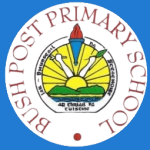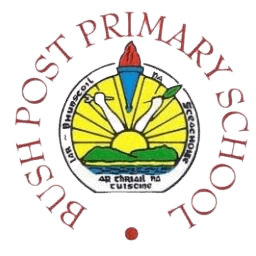Guidance
Please click on the links below for more information:
- CAO Timetable of Events
- Information on the new points scale
- Applying for HEAR- The Higher Education Access Route
- Applying for DARE- The Disability Access Route
- Applying to UCAS
- Applying to Post Leaving Certificate Courses
- Applying for the Grant- SUSI
- 6th years applying to DkIT
- CAREERS
- What we do in BPP
Guidance and Counselling in Bush Post Primary
Guidance and Counselling in Bush Post Primary focuses primarily on the personal, social, educational and vocational development of our students. Guidance and counselling is a whole school activity and as such every member of the school has a part to play in assisting with the personal and vocational development of our school community.
The aim of the Guidance and Counselling service is to professionally address the guidance and counselling needs of the student in the context of the overall school mission statement.
The Guidance Counsellors work in conjunction with other student support services in the school and in partnership with parents and outside agencies. Guidance and Counselling in Bush Post Primary involves a wide range of activities to assist all our students to reach their full potential in their secondary education and beyond.
- We provide a safe and confidential personal counselling service for any student who is struggling with any aspect of their lives.
- We offer a range of educational services including classes and one to one meetings to help students meet their educational goals.
- We provide classes in Guidance which helps students uncover and find the best vocational pathway for them both during and beyond their school years.
- We provide access to appropriate guidance which can include visits out of school to open days or career exhibitions
- We provide comprehensive support to students applying for a range of career related services such as CAO, UCAS, HEAR, DARE, SUSI
- Our service helps students develop the necessary self-directed management skills to make informed choices about their current and future plans.
- We are on hand to talk with parents, teachers and students about any concerns they have.
- At present we have three Guidance Counsellors in Bush Post Primary: Deborah McMahon, Sandra Woods and Karen McMullen.
COUNSELLING
Counselling is an interactive learning process between counsellor and student, whether individual or group, which approaches, in a holistic way, personal, educational and/or vocational issues. Moreover, the availability of a counselling service can support individual students inside/outside the classroom context, the pastoral and the disciplinary structures in the school. Competitiveness, bullying, social exclusion, family crisis, scholastic under-achievement, abuse, homophobia, peer pressure, substance mis-use and racism are some of the problems which can be assisted with the support of counselling.
Individual Counselling
Individual Counselling – is an interactive process, which facilitates meaningful understanding of the self and environment and/or clarification of goals and values for future behaviour.
Group Counselling
Group Counselling – is a broad term covering types of counselling for more than two people. In group counselling members listen to, support and challenge each other and thus, learn to be open, constructive, assertive and to experience how others see them.It is essential that a counselling service within the school operates in collaboration with processes within the school, which promotes the wellbeing of the school, particularly pastoral and disciplinary teams. Working within the requirements of The Irish Association for Counselling and Psychotherapy and the Institute of Guidance Counsellors Code of Ethics for legitimate practice, ensures that the service is properly supervised and monitored so that the student needs are prioritised and their rights protected. The service would be both reflective of, and in line with, the Dept. of Health and Children’s National Guidelines for the protection and welfare of Children Children First (1999) and with the Dept. of Education and Science Guidelines on Child Protection (2004).
CLASSROOM GUIDANCE
The SGC teaches Careers to senior cycle students for 1 period a week. In addition the SGC also interacts with Junior classes via SPHE classes. Topics covered include aptitude testing, applying for College, Career choice, CV building, Subject Options, Applying for grants, coping with College, Career Investigation, Studying abroad, Apprentices, Qualifications, Post Leaving Certificate Courses, Scholarships, study techniques, wellness, mindfullness, decision making skills.
ATTENDING OPEN DAYS
The GC facilitates and attends College open days throughout the school year ranging from DkIT, DCU, Maynooth College, Newry College, Drogheda Institute of Further Education, O’Fiaich Institute of Further Education.
CONSULTATION
SGC consultation is provided by and to significant adults in the student’s life. These adults include the school principal, the deputy principal, year heads, pastoral team, teachers, external agencies and parents. These consultations – advice, information or counselling -must always recognise the primacy of the student’s integrity and the need to maintain appropriate confidentiality.
CONFIDENTIALITY
All students have a right to confidentiality in their dealings with the SGC. The right is not universal, however, and there are some cases in which – for the student’s best interest – confidentiality cannot be guaranteed e.g. in the case of abuse, bullying, and risk to life. In counselling the student, the counsellor should make the student aware that confidentiality could not be guaranteed in any of the above cases and that information of this nature would have to be referred on. In short, students who meet with the SGC will be informed of the following:
1) All things discussed are confidential between the student and the SGC except when the student himself or another person is at risk
2) Any information which highlights that the student or another person is in danger.
3) If the student is in danger of doing grievous harm to himself.
INFORMATION
Information is an essential component of the SGC’s portfolio. The SGC must be involved with
*Information gathering
*Information organisation
*Information dissemination.
The main function of the above is to provide as much information as possible on the widest range of options open to the student.
TRANSITIONS
The SGC is involved in preparation of transitions with the students at different stages of the student’s secondary education:
1) The junior cycle student, moving into transition/fifth year will need preparation regarding subject levels, work experience and the importance of decision-making now for his future.
2) The Leaving Cert. classes have been prepared since transition/fifth year for this stage. However, preparation for the actual leaving of school must now intensify. Information is the key factor in sixth year along with one to one counselling. The student must be properly prepared for post-schooling options e.g. employment, training, further education, emigration, unemployment and ways to circumvent it.
The SGC alone will not be able to deal with the totality of preparation necessary in a second level school. However, preparation for transitions can be successfully undertaken as a member of a team, which includes parents, pastoral care members, co-ordinators of TY and LCVP, and management.
TEAM
The SGC is a member of an overall educational team which includes subject teachers, class tutors, year heads, principal, deputy-principal, specialist teachers, Learning Support, S.P.H.E., C.S.P.E., and ancillary staff. Furthermore, the SGC, in conjunction with staff and management, will be central to and supportive of pastoral teams and policies which attempt comprehensively to deal with in-school issues.
REFERRAL
Referral is, in essence, a two way process. The SGC may refer and he/she in turn may be the recipient of referrals. Referrals may come to the SGC from parents, staff, principal or deputy-principal. Students who are referred to the SGC cannot be forced to attend and their choice must be respected. If, however, a student is referred and comes to the SGC their presence will be acknowledged and welcomed.
The SGC, in consultation with the relevant parties – parents and/or principal (DLP*) – may also refer a student to an external, appropriately qualified professional. A legitimate referral (one made with the received permission of the necessary people) may occur after the SGC has made an informed decision that the student’s situation requires assistance beyond the SGC’s professional training.
*Permission sought from the Designated Liaison Person for a referral by the SGC to an external agency e.g. Health Board, Educational Psychologist etc…
ASSESSMENT
The GC is involved in the testing of incoming First Years and administers and corrects tests appropriate to their age group in conjunction with the Learning Support Dept.
Psychological and educational assessments/tests are useful insofar as they provide information for the SGC and others for whom it is relevant. Judicious use of test information is helpful in predicting academic and occupational performance, classifying ability, assessing remediation requirements and levels of achievement. Assessment results are important. Yet, their dissemination is of equal or greater importance. In returning the results of a student’s assessment, the SGC must be aware of the confidentiality and sensitivities of the student and the manner in which the SGC shares the information with the student.Tests may include: Personality tests, Aptitude tests, Interest inventories, Problem checklist, General ability tests, Performance tests, School exam results and Public exam results.
ACCOUNTABILITY AND EVALUATION
The SGC is mindful of obligations to management, staff and students alike. The counsellor discusses with and informs both staff and students of information that is relevant and pertinent to their situations.
INFORMATION FOR STUDENTS
Particular attention should be paid by the SGC in introducing the elements of the service to the first year classes. It is important that the availability of the service is made known to them, as it will be a new educational resource to incoming first years. Students are to be informed or reminded of the procedure of using a guidance slip to leave class.
INFORMATION FOR PARENTS
It is important that parents are made to feel free and welcome to come and visit the guidance counsellor. An appointment system is the best operational mode in this way. Alternatively, an email from parents over a concern can be accommodated quickly. Also, as part of overall school information dissemination e.g. school notices, parent-teacher meetings, open nights, enrolment days etc. information regarding guidance and counselling is made available as required and on the school website – http://www.bpps.ie
The GC holds parents information evenings throughout the year for CAO, Subject Choice in 3rd Year and Incoming First Years Parents.
INFORMATION FOR STAFF MEMBERS
Transparency is the key word for the SGC in dealing with colleagues. Particularly with regard to students who have educational, physical, social, behavioural problems. Bearing in mind the SGC’c obligation to confidentiality he/she should consciously and freely make available all relevant information about students to his/her colleagues. Information and new developments in guidance are to be shared with and made available to staff members. Enquiries are to be encouraged and a sense of inclusivity fostered.

